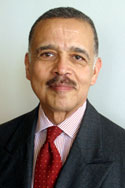ARCHIVES
OF EDITORIALS
June 30, 2005
Necessary
inquiries
There is a substantial disparity in Boston between
the health status of African Americans and other racial groups.
According to a recent study of the problem, it appears that a
college education and higher income does not cure the disparity.
Blacks in Boston are twice as likely as whites to die from diabetes
and are four times more likely to perish from HIV. Black men in
Boston are likely to die five years younger than white men.
An easy explanation for this disparity is racial discrimination.
Those who assert this point of view might rely on the report which
found that blacks in Boston are four times more likely than whites
to believe that they have been discriminated against by the health
care industry.
However, that does not explain why black women with bachelor’s
degrees have the highest infant mortality rate in the city –
12.4 per 100,000 births compared with only 3.4 per 100,000 births
for college educated whites.
The accessibility of healthcare is also not a primary issue. While
11 percent of black adults lack health insurance compared with
only 5.6 percent of whites, the Boston Medical Center provides
quality care for everyone, whether or not they are able to pay.
That is its mission.
Mayor Thomas Menino understands that the racial differences in
health status have complex causes. He has launched a $1 million
effort to determine the reasons for the differences, and then
eliminate them. Menino deserves accolades from the Greater Boston
community for focusing on such a critical issue.
An appropriate ruling
For the first time ever, the federal Food and Drug
Administration has authorized the sale and distribution of a drug
to a specific racial group. BiDil, a heart drug, has been approved
for the treatment of African Americans.
The FDA approval process tests primarily for toxicity and efficacy.
The first step is to assure that a proposed drug has no harmful
side effects. The next step is to establish that the drug is sufficiently
effective in healing the targeted illness.
Early tests of BiDil did not establish sufficient improvement
among white patients. However, African Americans in the test responded
well to the treatment. Another study of 1,050 African Americans
with overtaxed hearts showed a 43 percent improvement in the survival
of those in the BiDil group.
Idealists object to a remedy for one so-called racial group because
they believe such a policy might vitiate the notion that we are
all members of one race – the human race. This view ignores
the fact that some genetic medical conditions have developed among
certain ethnic groups. African Americans are the primary victims
of sickle cell anemia and Ashkenazi Jews suffer from Tay-Sachs
disease.
Some have objected that there is no genetic test to determine
who is an African American. It is enough for a patient to declare
“I am black” in order to receive BiDil treatments.
However, since BiDil has passed the toxicity tests, the drug will
do no harm, and a wise patient will reconsider his ethnicity if
the drug provides no improvement in his condition.
With so much attention on gene therapy, which is quite specific,
it is timely for drugs to be specially targeted when appropriate.
Home
Page

